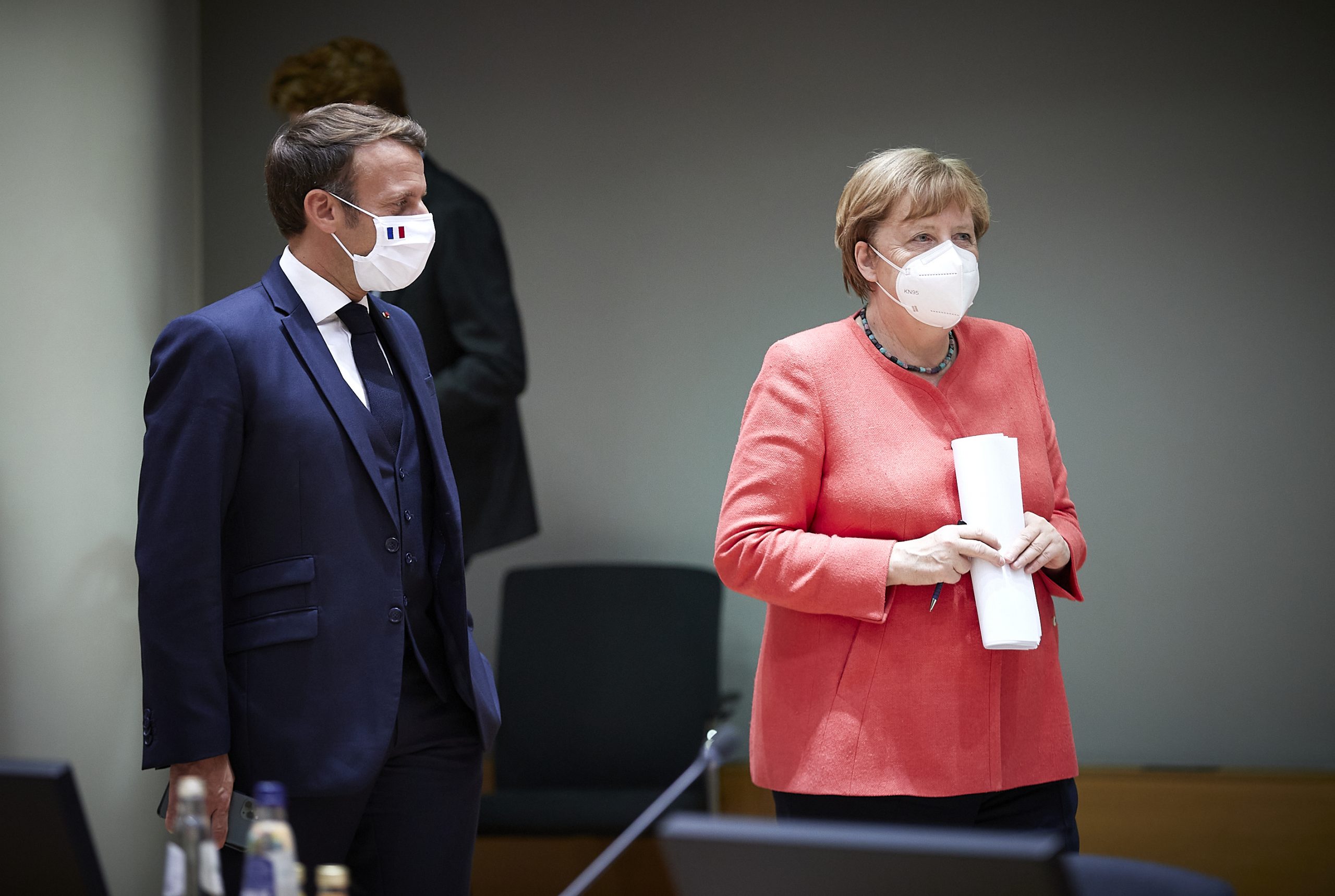Because Macron will seek more relations with Germany in the post-Merkel era

As the Merkel era comes to an end, Macron's France is already thinking about what comes next. The in-depth analysis of the Financial Times
As French President Emmanuel Macron prepares to welcome Germany's Angela Merkel on her last business trip to Paris, her administration is already thinking about what comes next. Says the Financial Times .
Germany's upcoming change of power in the September 26 elections is also a key moment for France, the other EU member state most important in shaping politics across the bloc. This week's demands from German politician Christian Lindner – for containment of government loans and transfers from the EU's richest to poorest members – is exactly the kind of unwelcome austere policy Paris fears could result from the vote.
Macron, who on Thursday will host a farewell "working dinner" for the German Chancellor at the Elysée in Paris, last year helped persuade Merkel to accept a 750 billion euro Covid-19 recovery package – funded from the common debt of the EU and by distributing grants and loans to member states.
It was something previously unthinkable for a German conservative leader. A French official called it "a total game changer" in managing the Covid crisis in Europe.
But Lindner's harsh conditions for his Liberal Democrats to join a German coalition are a reminder of the prevailing orthodoxy in Berlin. Lindner is seen on both sides of the Rhine as a strong candidate to be Germany's next finance minister, as his party is highly likely to figure in a post-election coalition.
“It's an eternal issue of disagreement between France and Germany,” said analyst Isabelle Bourgeois, founder of the website tandem-europe.eu . He was referring not only to Macron's push for a common EU budget, but also to discussions on the limits of national budget deficits and public sector debt levels under the so-called “Stability and Growth Pact” suspended during the pandemic.
Macron, according to Elvire Fabry, a senior researcher at the Jacques Delors Institute, also convinced Merkel to take a more robust approach to dealing with China.
“He's made Merkel evolve a lot over the past two years,” he said. “There has been a real change. . . It is in the interest of France that this movement continues ”.
There is no guarantee that a post-election coalition in Germany will maintain Merkel's recent relatively relaxed attitude towards Macron's France and the Mediterranean states that are the main beneficiaries of EU grants.
Daniela Schwarzer of the Open Society Foundations told a panel on European expectations of a post-Merkel Germany this week that Berlin was treating the increase in common debt for grants as a "one-time" crisis measure, not a permanent feature.
If Macron and France redouble their attempts to loosen tax rules, for example by trying to exclude "green" spending from the deficit calculation, "this is not good at all in Germany, and then we have a bad mix, frankly" for Franco-German relations after the elections, Schwarzer said.
However, any hardening of Germany's position once Merkel is gone will likely not be drastic enough to realize France's worst fears, which senior French officials say is considering its own German-style method of legally limiting deficits and losses. public debt.
Olaf Scholz of the less fiscally conservative Social Democrats and current finance minister of Germany is the favorite to succeed Merkel as chancellor. Scholz is on good terms with both Macron and Bruno Le Maire, the German-speaking French finance minister, who has vowed to resume reducing French budget deficits from next year and cutting total public sector debt.
In recent weeks Scholz and his closest rival Armin Laschet, of Merkel's Christian Democrats, have both beaten the road to Macron's door, as a sign of the importance of relations with Paris.
Georgina Wright of the Institut Montaigne added that France “says it needs a good relationship with whoever the next chancellor is and this is what Macron is doing. I don't think the French are expecting a fundamental change. They might hope for some flexibility, but they are pragmatic about it ”.
However, election calendars in both countries mean it may take some time for the EU's Franco-German engine to run smoothly again, after 16 years of stability under Merkel, who has dealt with four French presidents, since the late Jacques Chirac to Macron.
Coalition negotiations in Germany are likely to drag on for weeks as France is already entering its election season for presidential and legislative votes in April and May. "We will have a year of uncertainty," said Bourgeois.
(Extract from the press review of Eprcomunicazione)
This is a machine translation from Italian language of a post published on Start Magazine at the URL https://www.startmag.it/mondo/macron-germania-post-merkel/ on Sun, 19 Sep 2021 06:45:59 +0000.
